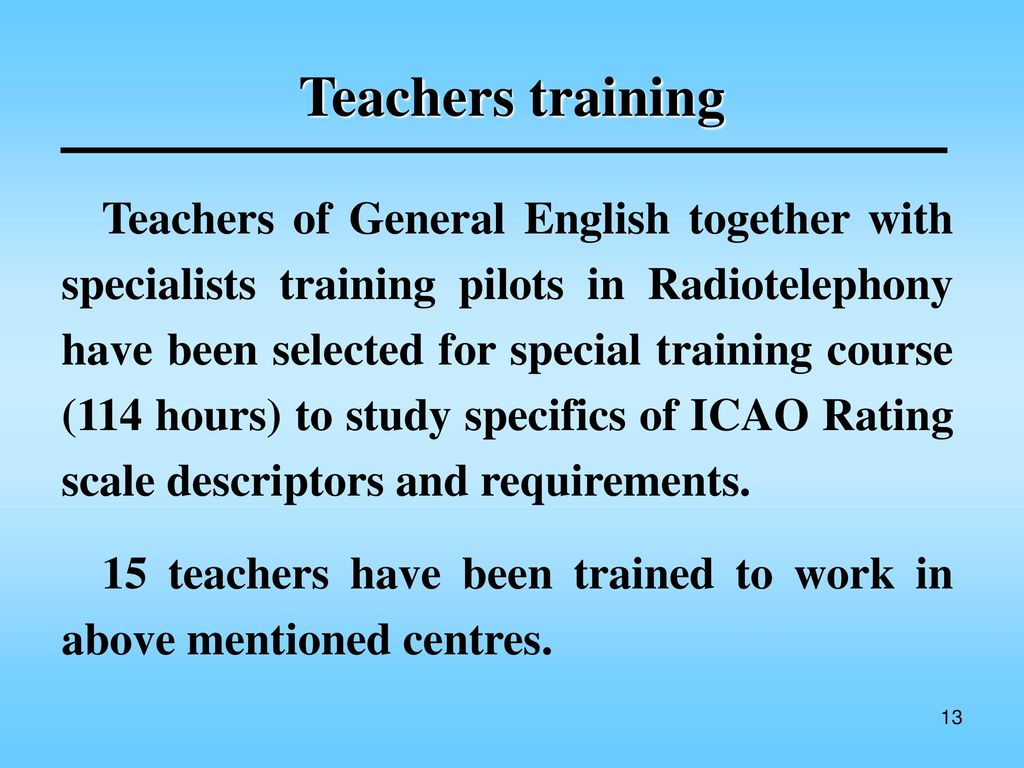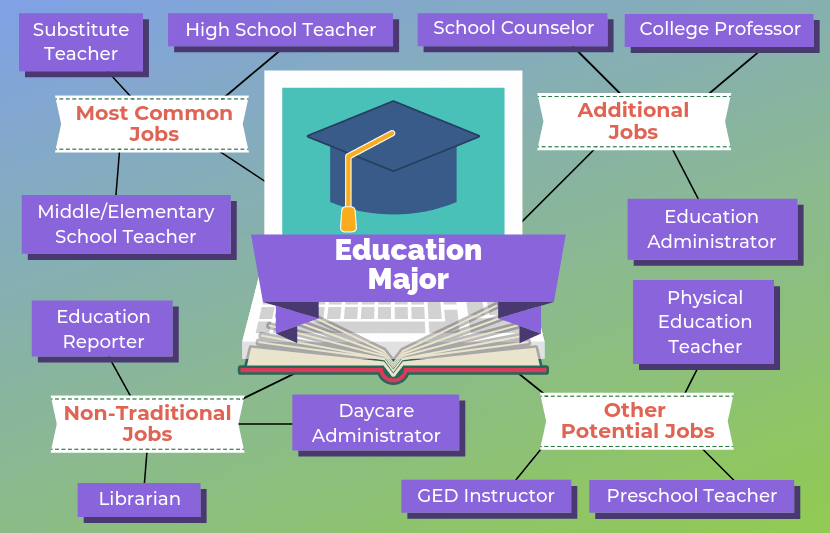What are the prerequisites for applying to an education degree program? This question pops up for many aspiring educators, and the answer isn’t a simple one-size-fits-all. From GPA requirements and standardized test scores to application materials and relevant experience, the path to becoming a teacher or educational professional is paved with various hurdles. This guide breaks down everything you need to know, offering a clear roadmap to navigate the application process and increase your chances of acceptance.
Landing your dream spot in an education degree program hinges on more than just good grades. This deep dive explores the academic prerequisites, standardized test scores, application components, and experience requirements. We’ll also cover program-specific needs, financial considerations, and answer those burning questions you might have. Get ready to ace your application!
Academic Prerequisites: What Are The Prerequisites For Applying To An Education Degree Program?

Embarking on a journey to become an educator requires careful planning and meeting specific academic requirements. Admission to education degree programs is competitive, and understanding the prerequisites is crucial for a successful application. This section Artikels the academic hurdles you’ll need to clear before stepping into a classroom as a teacher.
Minimum GPA and Required High School Courses
Colleges and universities typically set minimum GPA requirements for admission to their education programs. These requirements vary depending on the institution and the specific degree specialization. While a minimum GPA of 2.5 is sometimes seen, many competitive programs prefer applicants with a GPA of 3.0 or higher. Furthermore, a strong academic record throughout high school is also a key factor.
Certain high school courses are considered essential, demonstrating a foundational understanding of subjects relevant to teaching.
Prerequisite Courses by Education Specialization
The path to becoming a teacher isn’t one-size-fits-all. Different specializations within education, such as elementary education, secondary education, and special education, require different sets of prerequisite courses. For instance, aspiring elementary school teachers might need a stronger foundation in child development, while secondary education candidates may require more advanced coursework in their chosen subject area. Special education requires specialized knowledge of learning disabilities and individualized education programs.
| Degree Specialization | Minimum GPA | Required High School Courses | Recommended Courses |
|---|---|---|---|
| Elementary Education | 3.0 | English, Mathematics, Science, Social Studies | Psychology, Child Development, Art, Music |
| Secondary Education (Mathematics) | 2.75 | Algebra I & II, Geometry, Calculus (if possible) | Advanced Math Courses, Statistics, Computer Science |
| Secondary Education (English) | 3.2 | English I, II, III, IV (or equivalent) | AP Literature, Creative Writing, Journalism |
| Special Education | 3.0 | Psychology, Biology | Child Development, Sociology, Special Education coursework (if available in high school) |
Standardized Test Scores
Navigating the world of education degree programs often involves more than just a stellar academic record. Many institutions require standardized test scores as part of their admissions criteria, adding another layer to the application process. These tests aim to assess a candidate’s aptitude and preparedness for the rigors of graduate-level education. Understanding their role and how they’re weighed is crucial for prospective students.Standardized tests like the GRE (Graduate Record Examinations) and the Praxis are commonly used in evaluating applicants for education programs.
The GRE is a more general graduate admissions test, while the Praxis focuses specifically on assessing teaching skills and knowledge. The weight given to these scores varies considerably depending on the specific program and institution. Some programs might heavily emphasize test scores, while others may give more weight to practical experience, letters of recommendation, or personal statements.
This nuanced approach underscores the importance of understanding each program’s unique admissions policies.
GRE and Praxis Score Requirements
Minimum acceptable scores for the GRE and Praxis vary significantly across institutions and even within different programs at the same university. For instance, a highly competitive teacher education program at a prestigious university might require GRE scores well above the national average, while a less selective program at a smaller institution might have lower thresholds. Similarly, Praxis scores often have subject-specific cutoffs, reflecting the specific competencies needed for particular teaching certifications.
It’s essential to check the specific requirements on each program’s website. For example, a program specializing in secondary mathematics education might have a higher required score on the Praxis Mathematics exam compared to a program focusing on early childhood education. The lack of standardized minimums across all institutions highlights the importance of thorough research into individual program requirements.
Weighing Standardized Test Scores with Other Application Components
Many institutions employ a holistic review process, considering standardized test scores alongside other application materials. This approach recognizes that test scores are just one piece of the puzzle. A strong academic record, compelling personal statement, relevant work experience, and glowing letters of recommendation can all compensate for scores that might fall slightly below the average. For instance, a candidate with limited teaching experience but a strong academic background and exceptional GRE scores might be considered alongside a candidate with extensive teaching experience but lower test scores.
The admissions committee weighs these factors to determine the overall suitability of each candidate. A common strategy involves creating a weighted average, where each component (GPA, test scores, letters of recommendation, etc.) is assigned a specific percentage. This weighted average then determines the overall application score.
Comparison of Standardized Test Requirements
Understanding the differences between the GRE and Praxis is vital. While both assess different aspects of a candidate’s capabilities, they are used differently in the application process.
- GRE: A general aptitude test assessing verbal reasoning, quantitative reasoning, and analytical writing. Many education programs, particularly at the master’s level, require the GRE. The specific score requirements vary significantly between institutions.
- Praxis: A series of tests designed specifically for aspiring educators. These tests assess content knowledge and pedagogical skills in various subject areas. Praxis scores are often required for teacher certification and licensure, and many education programs require specific Praxis scores for admission.
Application Materials
Gaining admission to an education degree program requires more than just strong academics and test scores. The application materials you submit paint a comprehensive picture of your qualifications and aspirations, offering the admissions committee crucial insights beyond your grades. A meticulously prepared application significantly increases your chances of acceptance.
Your application package typically includes several key components, each designed to showcase different aspects of your suitability for the program. Admissions committees carefully review each element to assess your potential as a future educator. A well-crafted application demonstrates not only your academic capabilities but also your personal qualities, commitment, and suitability for the demanding role of a teacher.
Transcripts
Official transcripts from all previously attended colleges and universities are essential. These documents provide a detailed record of your academic history, including courses taken, grades earned, and degree conferred (if applicable). Admissions committees scrutinize GPA, course selection (particularly in relevant subjects like education, psychology, or a related field), and any upward or downward trends in academic performance. A strong academic record, reflecting consistent effort and achievement, is highly valued.
Inconsistent performance may require a compelling explanation in your personal statement.
Letters of Recommendation
Letters of recommendation provide external validation of your skills and potential. These letters should come from individuals who can speak to your abilities, character, and suitability for the profession. Ideally, these should include professors who have taught you in relevant coursework, supervisors from previous jobs (if applicable), or mentors who know you well. Admissions committees look for letters that highlight specific examples of your strengths, such as your communication skills, leadership abilities, problem-solving skills, and dedication to learning.
Generic letters lacking specific details are less impactful.
Securing a spot in an education degree program typically requires a bachelor’s degree and strong academic records. However, understanding the post-graduation landscape is crucial; check out this article on What are the challenges faced by education degree graduates in the job market? to prepare yourself. This foresight can help you tailor your prerequisites to better equip yourself for the competitive job market after graduation.
Personal Statement
The personal statement is your opportunity to showcase your unique qualities and aspirations. It’s a chance to connect your past experiences, motivations, and goals to your desire to pursue a career in education. Admissions committees assess your writing skills, clarity of thought, and the compelling nature of your narrative. A well-written statement should clearly articulate your passion for education, explain your choice of this specific program, and demonstrate self-awareness and reflection on your experiences.
It should also showcase your understanding of the teaching profession and its challenges. Avoid generic statements; instead, focus on specific experiences that shaped your interest in education.
Selecting and Requesting Letters of Recommendation
Choosing recommenders requires careful consideration. Select individuals who know you well and can speak to your strengths convincingly. Give them ample time to write a thoughtful letter—at least a month is ideal. Provide them with your resume, a personal statement draft, and a brief overview of the program to which you are applying. This will allow them to tailor their recommendation effectively.
Express your gratitude for their time and effort, and always follow up politely to ensure they submit the letter on time.
Application Checklist
To ensure a smooth application process, it’s crucial to create and diligently follow a checklist. This helps avoid last-minute stress and ensures all necessary documents are submitted before the deadline.
A sample checklist might include:
- Completed application form
- Official transcripts from all previously attended institutions
- Standardized test scores (if required)
- Letters of recommendation (specify the number required)
- Personal statement
- Resume or Curriculum Vitae (CV)
- Any additional supporting documents (e.g., portfolio, writing samples)
- Application fee payment (if applicable)
Experience and Background

Landing your dream education degree isn’t just about grades; it’s about showcasing your passion and practical experience. Admissions committees want to see evidence of your commitment to working with children or young adults and your understanding of the education field. Think of your application as a compelling narrative demonstrating your suitability for a career in education.Relevant experience significantly boosts your application.
It provides concrete examples of your skills and abilities, illustrating your readiness for the challenges of teaching. This section explores how to effectively present your experiences to make a lasting impression on admissions officers.
Examples of Relevant Work or Volunteer Experience
A strong application often includes experiences that directly relate to education or working with young people. Examples include tutoring, coaching, mentoring, volunteering at schools or community centers, or working in childcare settings. Even seemingly unrelated experiences can be valuable if you can effectively demonstrate transferable skills like patience, communication, leadership, and problem-solving. For instance, managing a team in a retail environment shows organizational skills and the ability to work collaboratively – all essential qualities for educators.
Volunteering at a summer camp demonstrates your ability to engage children in a fun and productive manner. These experiences paint a picture of your dedication and preparedness.
Demonstrating Commitment to Education and Working with Children or Young Adults
Beyond specific roles, admissions committees look for evidence of a genuine passion for education and a positive rapport with children or young adults. This commitment can be shown through consistent involvement in activities related to education and youth development, such as participation in educational initiatives, mentoring programs, or leadership roles in student organizations. Strong letters of recommendation from supervisors or mentors who can attest to your skills and dedication further strengthen your application.
Active involvement in your community, coupled with a well-written personal statement, effectively conveys your commitment.
Highlighting Relevant Skills and Experiences
Your personal statement and resume are crucial platforms for highlighting your relevant skills and experiences. In your personal statement, use storytelling to illustrate how your experiences have shaped your passion for education and your understanding of the challenges and rewards of teaching. For example, recount a specific instance where you mentored a struggling student, highlighting the strategies you used and the positive outcome.
Before diving into the prerequisites for an education degree—like a high school diploma and possibly relevant work experience—it’s crucial to consider the long-term prospects. Is investing the time and effort truly worthwhile? To help you decide, check out this insightful article: Is a degree in education worth it for career advancement? Ultimately, understanding the career implications informs your preparation for meeting the specific admission requirements of your chosen program.
On your resume, use action verbs and quantifiable results whenever possible. Instead of simply stating “Tutored students,” try “Tutored 10 students in mathematics, resulting in a 20% average improvement in test scores.”
Creating a Visually Appealing Resume, What are the prerequisites for applying to an education degree program?
A well-structured resume is essential. Using bullet points to highlight key achievements and responsibilities makes it easy for admissions committees to quickly assess your qualifications. A clean, professional design with clear headings and consistent formatting creates a positive first impression.
- Experience: Volunteer Tutor, Community Learning Center (2021-Present) – Provided individualized tutoring to 15 students in math and science, resulting in a 15% average increase in grades.
- Skills: Patience, Communication, Problem-solving, Organization, Leadership, Curriculum Development (basic), Classroom Management (basic)
- Education: Bachelor of Arts in Psychology, University X (2018-2022)
- Awards and Recognition: Dean’s List, University X (2019, 2020, 2021)
This format is clear, concise, and visually appealing. It showcases relevant experience and skills effectively, making it easy for admissions committees to quickly grasp your qualifications. Remember to tailor your resume to each specific program to highlight the most relevant experiences.
Program-Specific Requirements
Applying to an education degree program isn’t just about meeting general academic standards; it often involves navigating a maze of program-specific requirements that vary wildly depending on the institution and your chosen specialization. These requirements go beyond the basics and delve into the practical aspects of your chosen field, ensuring you’re adequately prepared for the challenges ahead.Program-specific requirements act as a filter, ensuring that only the most suitable and prepared candidates are admitted to the program.
Understanding these requirements is crucial for a successful application. Failure to meet these specific criteria could lead to application rejection, regardless of strong academic performance in other areas.
Teaching Practicums and Field Experiences
Many education programs, especially those leading to teacher certification, require significant fieldwork. These practicums provide hands-on experience in real classroom settings, allowing you to apply theoretical knowledge and develop practical teaching skills under the supervision of experienced educators. The length and intensity of these practicums vary significantly. Some programs may require a single semester-long placement, while others may demand multiple shorter placements throughout the program.
The specific schools or districts where you complete your practicum may also be pre-determined by the program or require you to secure a placement yourself, often involving navigating a separate application process. Successful completion of the practicum is usually a prerequisite for graduation.
Interviews and Portfolio Reviews
Beyond academic transcripts and test scores, some programs incorporate interviews as a crucial part of the application process. These interviews provide an opportunity for admissions committees to assess your suitability for the program, evaluate your teaching philosophy, and gauge your communication skills. Similarly, some programs may require the submission of a teaching portfolio showcasing your skills and experiences. This portfolio might include lesson plans, student work samples, teaching reflections, and letters of recommendation.
The rigor and specifics of the interview process and portfolio review vary widely between institutions and specializations. Some institutions may conduct panel interviews, while others might opt for individual interviews.
Requirements for Different Education Programs
Teacher certification programs often place a strong emphasis on practical experience through student teaching and fieldwork. Master’s degrees in education, on the other hand, may focus more on research and theoretical understanding, sometimes requiring a thesis or capstone project. Specializations within education, such as special education or early childhood education, will also have specific requirements tailored to the unique demands of those fields.
For instance, special education programs might require specific coursework in child development and assessment methodologies, while early childhood education programs might necessitate experience working with young children.
Program-Specific Requirement Examples
| Program Type | Institution | Specific Requirement | Application Deadline |
|---|---|---|---|
| Teacher Certification (Elementary Education) | University A | 10-week student teaching placement in a partner school | February 1st |
| Master’s in Educational Leadership | University B | Portfolio showcasing leadership experiences and a 30-minute interview | March 15th |
| Special Education Certification | University C | Completion of a practicum in a special education classroom and passing score on Praxis II exam | April 1st |
| Early Childhood Education | University D | Background check and 20 hours of volunteer experience working with young children | May 1st |
Financial Considerations
Pursuing an education degree is a significant investment, both in time and money. Understanding the associated costs and available funding options is crucial for prospective students to make informed decisions and plan their finances effectively. Failing to adequately address the financial aspect can lead to unnecessary stress and potentially hinder the completion of your studies.The cost of an education degree program varies widely depending on factors such as the institution (public vs.
private), location (urban vs. rural), program length, and the student’s individual choices. It’s essential to thoroughly research these factors before committing to a specific program.
Tuition and Fees
Tuition fees are the primary cost associated with attending an education degree program. These fees cover the instruction and resources provided by the institution. Additional fees may also apply, including technology fees, student activity fees, and lab fees, which can significantly add to the overall cost. For example, a public university might charge between $10,000 and $25,000 per year in tuition, while a private institution could charge significantly more, potentially exceeding $50,000 annually.
These figures are estimates and vary greatly by institution and location.
Books and Supplies
Textbooks, course materials, and other necessary supplies represent another significant expense. Depending on the number of courses and the specific requirements of each class, the cost of books and supplies can easily range from $500 to $1,500 per academic year. Students should factor this cost into their overall budget, and explore options such as renting textbooks or purchasing used copies to reduce expenses.
Financing Options
Several avenues exist for financing an education degree. Scholarships and grants are forms of financial aid that do not need to be repaid. Scholarships are often merit-based, awarded to students with exceptional academic records or other achievements. Grants are typically need-based, awarded to students who demonstrate financial hardship. Many institutions offer their own scholarships and grants, while external organizations also provide funding opportunities.Loans, on the other hand, are borrowed funds that must be repaid with interest after graduation.
Federal student loans offer lower interest rates and more flexible repayment plans than private loans. However, it’s crucial to understand the terms and conditions of any loan before accepting it, to avoid accumulating excessive debt.
Resources for Financial Aid
Numerous resources can help prospective students navigate the financial aid process. The Federal Student Aid website (studentaid.gov) provides comprehensive information on federal student loans, grants, and other financial aid programs. Individual institutions also have financial aid offices that can offer guidance and assistance in applying for financial aid. Additionally, many private organizations offer scholarships and grants, and searching online databases can uncover numerous opportunities.
Websites such as Fastweb and Scholarships.com are valuable resources for finding potential funding sources.
Detailed Cost Breakdown and Funding Sources
To illustrate a potential cost breakdown, let’s consider a hypothetical scenario. A student pursuing a four-year education degree at a public university might face annual costs of $20,000 (tuition), $1,000 (fees), and $1,000 (books and supplies), totaling $22,000 per year. Over four years, the total cost would be $88,000. This student could potentially secure a $5,000 annual scholarship and a $2,000 annual grant, reducing the overall cost.
The remaining amount could be financed through federal student loans, with the student needing to carefully manage their borrowing to minimize debt after graduation. It’s crucial to remember that this is just an example; actual costs and funding opportunities will vary significantly depending on individual circumstances.

